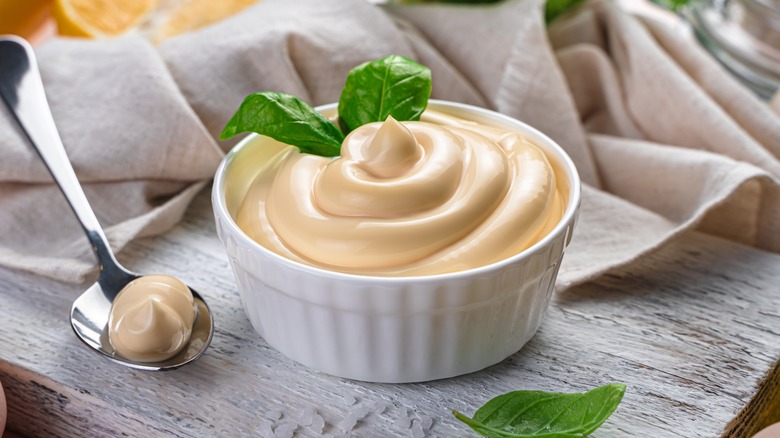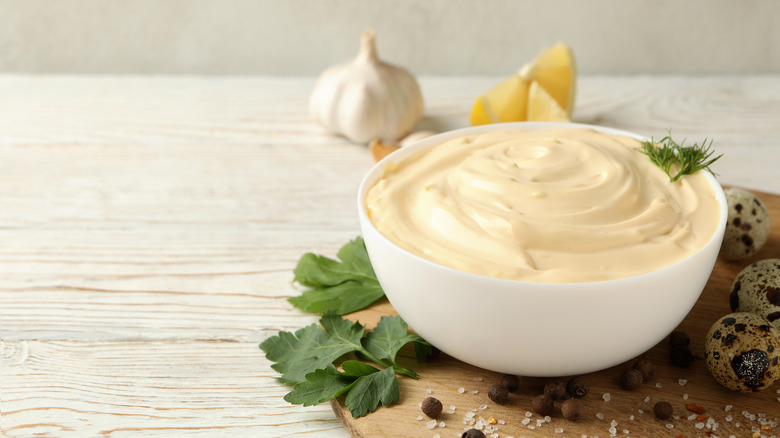Avoid Humidity At All Costs When Making Mayo
Mayonnaise is an essential condiment for so many reasons. It's perfect as a sandwich topping, or you can blend it with chipotles or jalapeños for an easy, spicy dip that goes with almost anything. But it also makes an excellent base for pasta salad or a creamy salad dressing, especially when it's coupled with plain Greek yogurt for a little extra tang. And like most things, while store-bought is fine, mayonnaise tastes better when you make it yourself. It's surprisingly easy, as long as you make it under the right conditions. Meaning, don't whip up a fresh batch of homemade mayonnaise when it's humid and warm out, unless you're in an air-conditioned kitchen.
Humidity and heat are not mayonnaise's friends. With too much moisture in the air, the mayonnaise will become heavy and greasy, which will give the opposite result from the light and fluffy texture you're looking for.
Don't make homemade mayonnaise when it's too warm or wet outside
Avoiding mayonnaise during humid weather is an unwritten, little-known cooking rule that most chefs stick to — sort of like that floating (but true) rumor about how you shouldn't shower during a thunderstorm.
Speaking of thunderstorms, don't make mayonnaise if the weather is bad; it means there is a lot of moisture in the air, unless you're in an air-conditioned, low-moisture environment. The trial-and-error rumor suggests that the mayonnaise falls flat and can become watery or greasy, meaning it won't blend in those salad dressings and pasta salads quite the way you expected.
If you absolutely need mayonnaise on a hot or humid day, you might be better off just purchasing a good-quality store brand. You can attempt homemade mayo, but make sure that the eggs are fully at room temperature to help reduce the risk of curdling.
How long does homemade mayonnaise last?
If you're making mayo yourself, you can expect it to have a much shorter shelf life than the kind that comes in a jar. Fresh mayonnaise only lasts up to four days, so don't make it too far in advance. Plus, for all intents and purposes, you can't freeze mayo. It will separate, and while you can potentially re-emulsify it in a blender once it defrosts, this doesn't always work, and it could have a different texture.
Something to consider when making homemade mayonnaise is the risk of foodborne illness. With store-brand mayonnaise, the eggs are pasteurized to remove bacteria. But when you make mayonnaise at home, those eggs go uncooked and unpasteurized. While the risk of foodborne illness is extremely low, the USDA still does not recommend consuming raw eggs for any reason — including in homemade mayo.
The general understanding is that about one in 20,000 eggs contain salmonella. It's unlikely that you'll get sick, but it's still something to consider if you're pregnant or have a compromised immune system.


